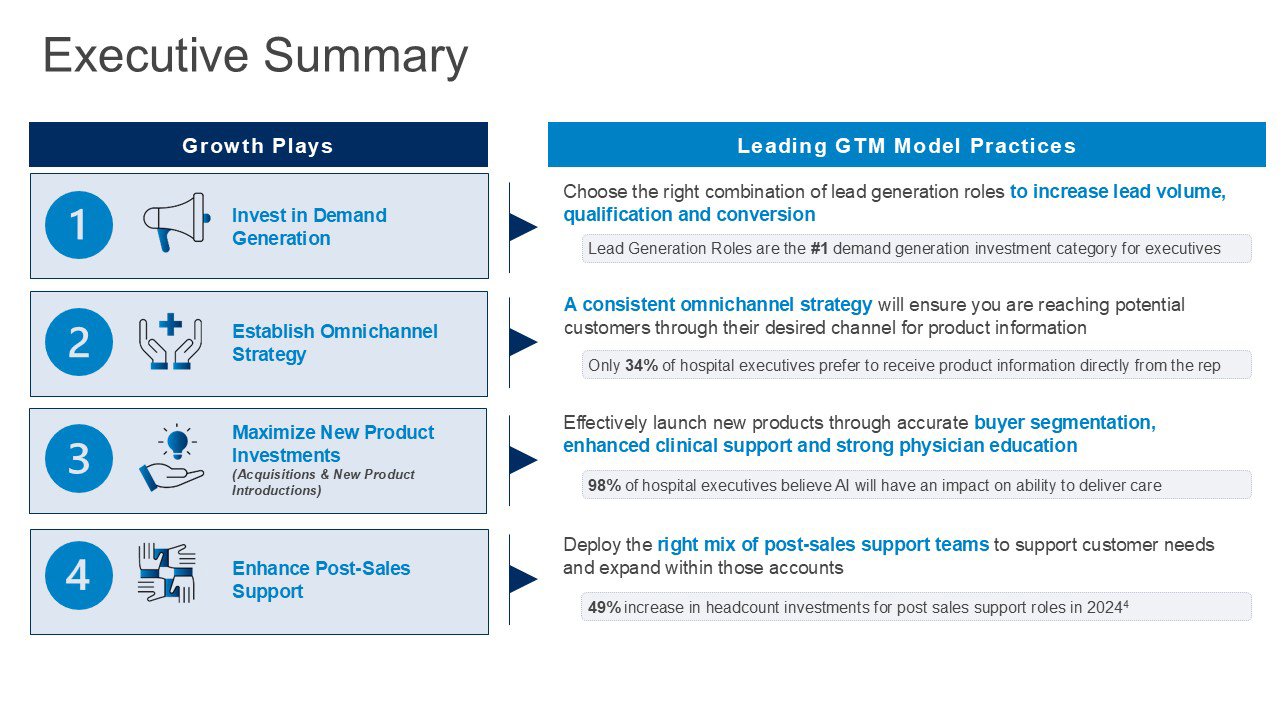Primary Growth Plays for Digital Health Organizations in 2025
1. Investing in Demand Generation
Demand generation will continue to be a critical focus area. Alexander Group’s Provider Research highlights that lead generation roles are the top demand generation investment category for executives. Organizations are deploying various business development models, including traditional models and emerging roles such as lead gen reps, new logo hunters and business development executives. Each of these roles plays a unique part in the pre-sales continuum, from lead generation and qualification to landing new logos and leveraging existing relationships.
As digital health organizations are investing in demand generation, choosing the right combination of lead generation roles to increase lead volume, qualification and conversion is a necessity. Aligning lead generation strategy with commercial models and growth goals will be key to driving productivity and profitability. Additionally, leveraging AI and marketing analytics can significantly enhance the effectiveness of demand generation efforts.
2. Embracing Omnichannel Strategies
One of the most prominent trends in digital health is the adoption of omnichannel communication and campaign strategies. In 2025, a consistent and integrated approach across multiple channels will be essential for reaching potential customers. Surveyed hospital executives and physicians gather product information from various sources, including emails, brochures, mobile apps and social media. Therefore, ensuring consistent messaging across all channels is paramount.
To implement an effective omnichannel strategy, digital health companies must develop a consistent account targeting strategy between marketing and sales. Utilizing customer data to understand preferences and behaviors of top-tier accounts will enable more personalized interactions and improve engagement. Starting with a small group of top-tier accounts to test and refine the approach before expanding into other segments can help in gathering valuable feedback and optimizing the strategy.
3. Maximizing New Product Investments
Healthcare organizations are expected to continue aggressive investments across all digital health product lines. The report indicates that 98% of physicians and hospital executives believe AI will have a major impact on the ability to deliver care in the future. This underscores the importance of maximizing new product investments, particularly in areas such as AI for hospital operations and procedures, telehealth, patient engagement and practice management software.
Successful product launches require precise targeting strategies, differentiated messaging, clear role responsibilities, and aligned incentives across marketing, sales and support roles. Sales reps must be enabled with clear buyer segmentation, training, value propositions, support and aligned incentive plans to accelerate new technology sales. Elevated post-sales support roles are also needed to provide users with additional support before, during and after the sale, improving customer satisfaction and renewal potential. AI can enhance lead generation roles’ productivity, improve demand generation efforts and provide real-time insights for customers.






